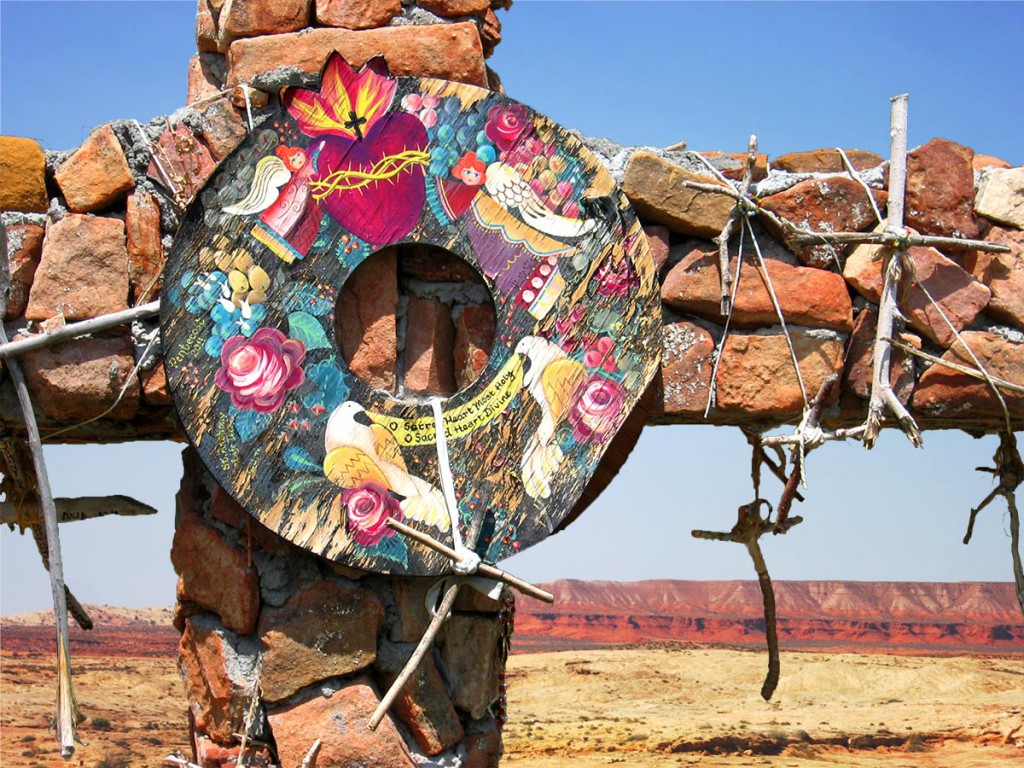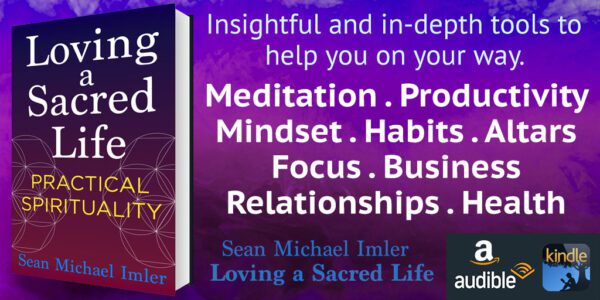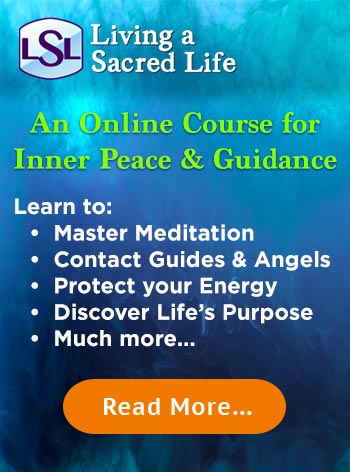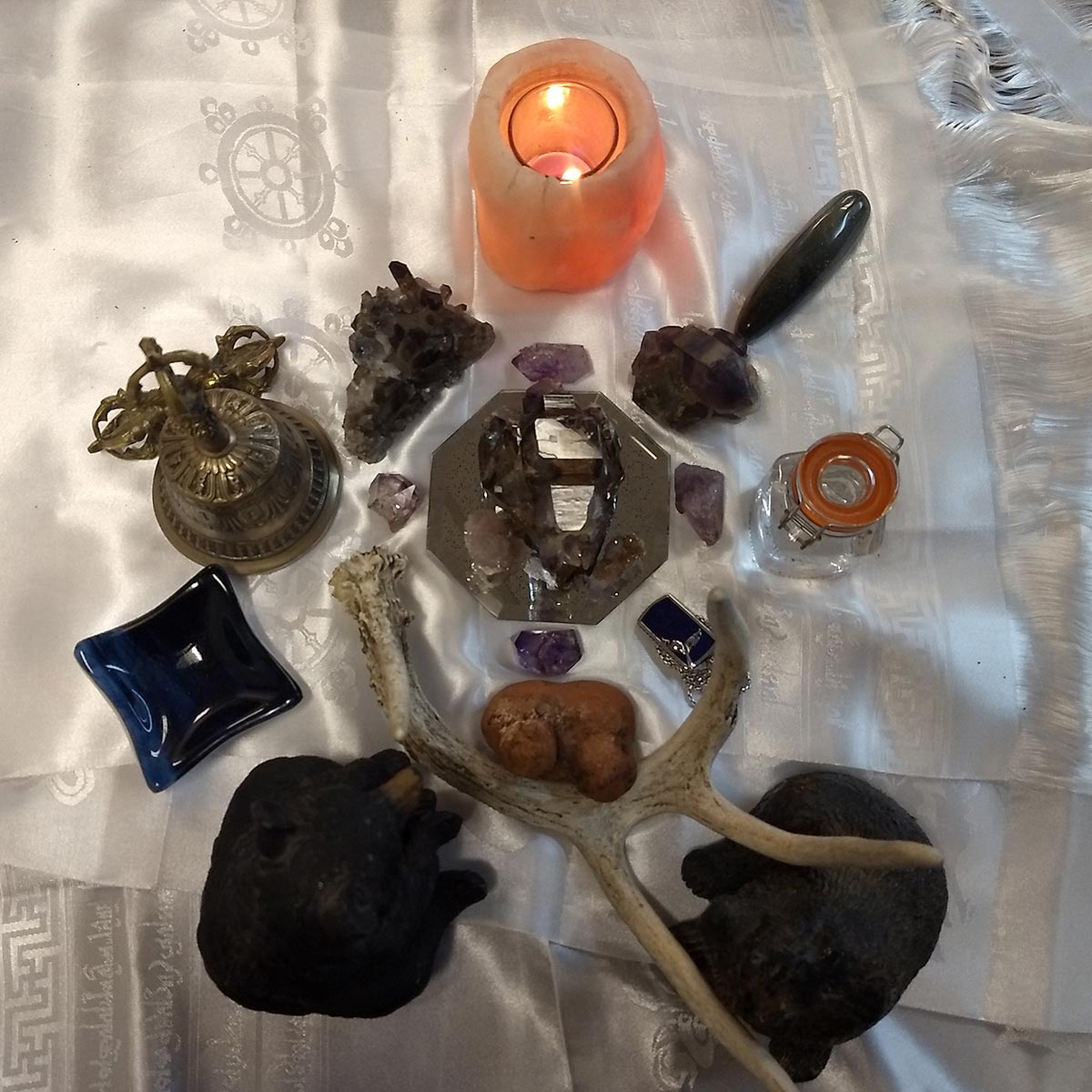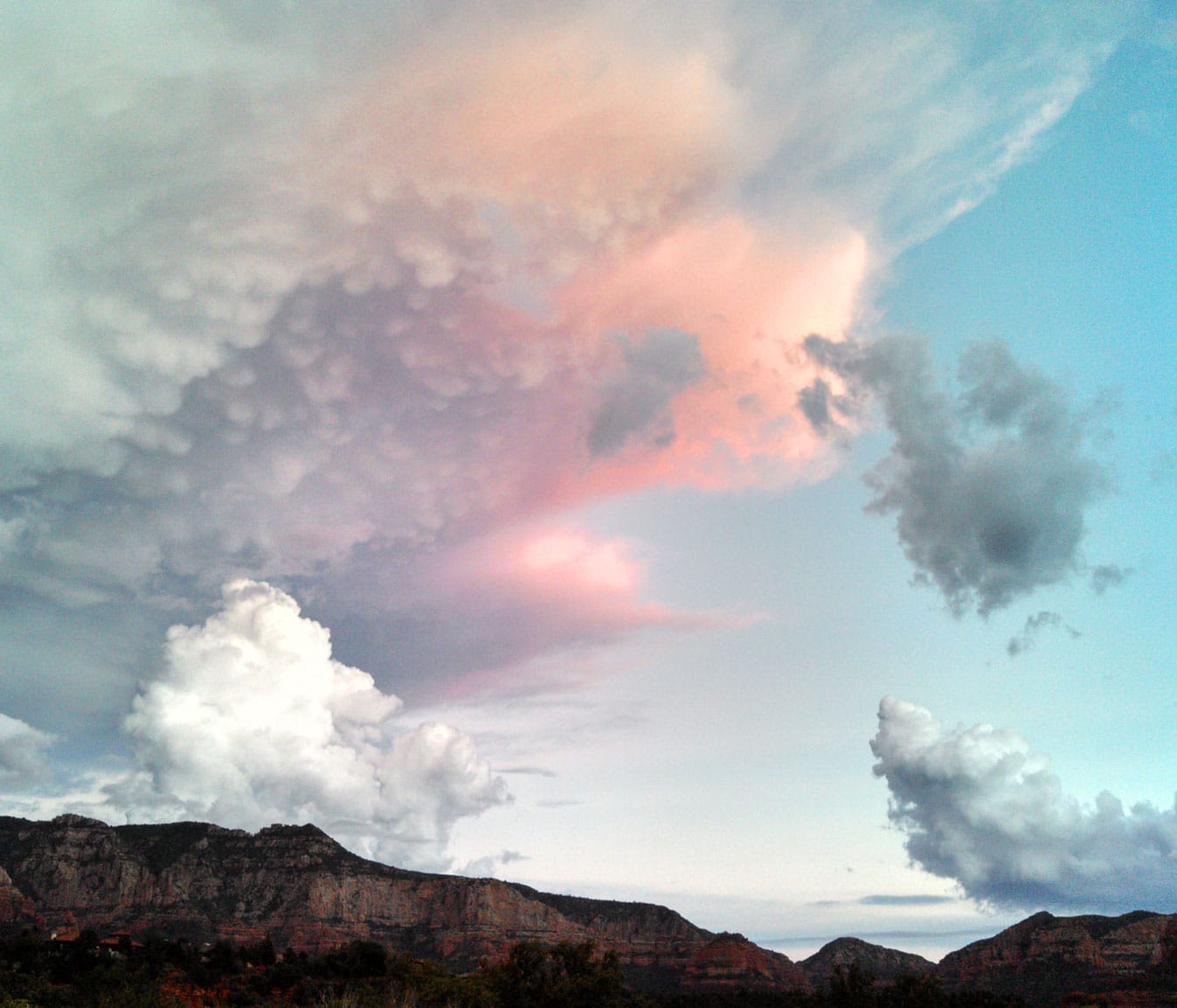Why Does It Matter?
I began this point of inquiry because I was asked to give a talk by my church on understanding indigenous religions. I didn’t choose this title, but it seemed as close as I would get to the subject that I’d discuss, which was, the qualities of indigenous civilizations and how their belief systems differ from those of the major world religions. I wasn’t comfortable relating the term “religious” with indigenous cultures because I could only relate it to the major religions. I battled with what it meant to be religious, as opposed to simply being spiritual. I asked a number of people what their opinion was and everyone had the same perception that I did, namely, to be religious was to adhere to a major religious system, and to be spiritual was to have a relationship to spirit that wasn’t religious. I looked at the standard definitions and realized that there was a great misconception at hand. Let’s look at these now:
- re·li·gion – /ri-ˈli-jən/
- Noun
-
- a set of beliefs concerning the cause, nature, and purpose of the universe, especially when considered as the creation of a superhuman.
- agency or agencies, usually involving devotional and ritual observances, and often containing a moral code governing the conduct of human affairs.
- a specific fundamental set of beliefs
and practices generally agreed upon by a number of persons or sects: the Christian religion; the Buddhist religion. - the body of persons adhering to a particular set of beliefs and practices: a world council of religions.
- the life or state of a monk, nun, etc.: to enter religion.
- the practice of religious beliefs; ritual observance of faith.
- something one believes in and follows devotedly; a point or matter of ethics or conscience: to make a religion of fighting prejudice.
- Synonyms
credo – creed – cult – faith – persuasion
- spir·i·tu·al – /spir-i-chə-wəl/
- Adjective
- of, pertaining to, or consisting of spirit; incorporeal.
- of or pertaining to the spirit or soul, as distinguished from the physical nature: a spiritual approach to life.
- closely akin in interests, attitude, outlook, etc.: the professor’s spiritual heir in linguistics.
- of or pertaining to spirits or to spiritualists; supernatural or spiritualistic.
- characterized by or suggesting predominance of the spirit; ethereal or delicately refined: She is more of a spiritual type than her rowdy brother.
- of or pertaining to the spirit as the seat of the moral or religious nature.
- of or pertaining to sacred things or matters; religious; devotional; sacred.
- of or relating to supernatural beings or phenomena.
- Synonyms
bodiless – ethereal – formless – incorporeal – insubstantial – nonmaterial – nonphysical – immaterial – unbodied – unsubstantial
The Dividing Line Between Religious and Spiritual
When I was a kid, I attended a Christian school and I went to church regularly. My parents weren’t into it nearly as much as I was. I studied Hebrew; went to Sunday school; was in Awana; did bible study. I know that many people who attend church would consider themselves to be “spiritual” because, after all, they are made in God’s image. However, many would simply consider themselves to be religious because it’s “something one believes in and follows devotedly; a point or matter of ethics or conscience.” They follow the doctrines and point of view of their church. To be spiritual may mean to be into “new age” things like the amalgamation of popular eastern concepts such as meridians, chakras, Theosophy, and the Tao. It could include psychics, mediums, esoteric thought, and even extraterrestrials. So, for a religious person to identify with being “spiritual” could have other connotations beyond their church’s doctrine. This means that being religious doesn’t require being spiritual.
If you asked many self observed “spiritual” people, there are different points of view they may assume. Some believe in God and some don’t. Some believe in something but it’s not a God, and some have completely different beliefs. All of these people have a belief, but may not have a practice that supports this belief. To be religious as it’s defined above entails “the practice of religious beliefs.” This means that to be spiritual doesn’t require being religious.
Religious and Spiritual Extremes
Extreme religious groups encompass the major religions and branches thereof. The downsides to some of these organizations can be their lack of tolerance, exclusion, and military tactics. One organization whose members excludes others prefer not to interact with those that aren’t of their faith because they’re unclean. I have neighbors that live two doors down from me that I’ll probably never know because I’m not part of their religion. Another religion I can think of isn’t very tolerant of lifestyles that don’t fit their model and they’ll either try to convert you or persecute you. There’s also the problem of being the enemy of a religion when you don’t see things their way. Some just have so much dogma that it’s difficult to weed thru it all and be a member without the right qualifications or intellectual background.
The extreme of religion is to have a belief system that excludes all others for its own superiority, and the extreme of spiritual shelters itself from others as protection.
Extreme spiritual groups perceive those outside the group too different to understand the group’s identity and thus threaten it. Even though these types of groups often have rituals associated with them, they are not religions as defined above, hence, the rituals may be of questionable origin, promulgated by the leader or leaders. These types of groups will often retreat to far away places, seeking seclusion from those that don’t understand or agree with their principles. Exclusion from society, family, and friends may also be a prerequisite to admittance and participation. The spiritual aspect could be to gain a wisdom that would otherwise not be achievable through standard belief systems.
The Balance Between Religious and Spiritual
When there’s a balance of both religious and spiritual, there’s a combining of important principles. There’s a faith and belief in a non-corporeal reality coupled with the acknowledgement of a divine nature within the self (spiritual). There’s also a ritual or ceremonial practice that draws upon one’s understanding of how to strengthen their spiritual awareness (religion). A lot of people think the word ritual is something that takes place at night, with torches, on another continent, with the sacrifice of some poor undeserving animal. A ritual is either a religious ceremony or something you do habitually. This habitual part, I believe, is the thing that is often missing from one’s spiritual life.
There’s a limitation to just being spiritual without being religious. It’s kind of like having $100,000 and not investing it. If you just sit on it by keeping it in the bank at low interest, eventually the rate of inflation will exceed the interest growth and the money gets devalued. Many people will find that they feel something missing in their lives because their spiritual selves aren’t expressed and shared with others. You may belong to a religious organization or church that doesn’t acknowledge the spiritual. It is especially prevalent when we work in a corporate or business environment where the focus is on financial matters, and not social. There are things that may help to merge the two within you.
Ideas for Merging Religious and Spiritual
- A multi-faith church – I’m a minister through the Universal Church of the Master (UCM), http://u-c-m.org. They’re multi-faith, come as you are group that honours all religions and walks of life. There are other religious organizations that are similar, often consisting of congregations that have come from major religious orders and seeking something more open spiritually without dogma and/or preference.
- A meditation practice – There are a lot of meditation techniques out there but not all are targeted toward connecting you to your spiritual essence in accord with a higher power. Practices like mindfulness and Zen are more intellectual and help a lot to calm your physiological stress complex and break down your belief systems. Correspondence practices help you to take small steps in learning a practice via mail, email, or multimedia. They’ll also have community, books for further study, and possible meditation groups in your area. A few good ones are:
- Paramahansa Yogananda’s Self Realization Fellowship, a favourite of mine.
http://yogananda-srf.org/ - Transcendental Meditation (TM) brought to the west by Maharishi Mahesh Yogi.
http://tm.org/ - Clairvision School started by Samuel Sagan.
http://www.clairvision.org/
- Paramahansa Yogananda’s Self Realization Fellowship, a favourite of mine.
- Meetup – http://meetup.com is a website and a great outlet for finding like minded people in your area. You search the site by keywords of things you like and it brings up groups of people that do those things. Many times the groups aren’t that active but it just takes someone to initiate an event. Just trust that you’ll always connect with the people you’re supposed to.
- Prayer – This isn’t the kind of prayer where you’re praying FOR things. It’s more powerful to be grateful for the things you have. Itemize them and let the power build as you pray and give thanks. Once you get the power generated, send that power to those that are in need. They could be friends, family, or people you don’t even know. Acknowledge that the power you’re generating is doing good things for you and simply ask to be better than the best you can be. Prayer can be done before you leave the house in the morning, before you go to bed at night, or anytime that you have that can be consistent.
- Yoga – Yoga is a great way to meet people, bring health to your body, learn to quiet your mind, and connect with spirit all at the same time. You may find the perfect teacher right off the bat if you set your mind to it. Or, it may take a few tries until you find just the right fit. Start by looking for a yoga studio and see what classes they’re offering. Often you can combine a meditation space and a yoga space and get both needs served.
- Nature – If you’re a concrete jungle type of person, get outside and get into the park, the forest, a riverwalk, anything that will consistently remind you that we come from the earth, and will eventually go back to it. I would say a daily walk is a great thing. Constantly remind yourself of the planet and the biological processes that occur in spite of humanity’s presence here. There are physiological and psychological reasons for doing this and it can’t be overstressed how important it is.
In Conclusion
I discovered through this exploration that I was okay defining indigenous societies as being religious simply because they had consistent rituals. It also brought clarity to my understanding that being spiritual, like being religious, needs to have equal parts stimulation and temperament. As is my nature, I tend to lean toward balance in all things, and this is equally important with being spiritual and being religious. Each is better served with a bit of the other.

